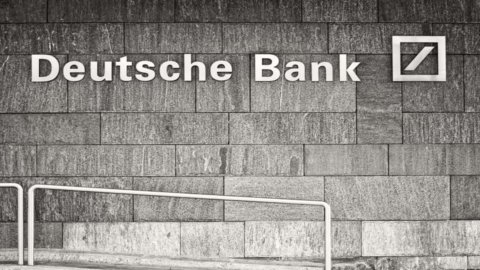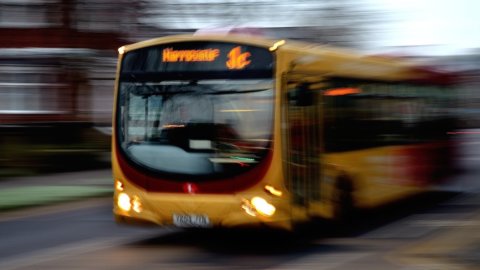Since 1992 Donatella Quaroni took over the reins of the Tenuta Borgolano company, founded way back in 1903 by his grandfather Romano Quaroni, in the municipality of Montù Beccaria (PV), in the easternmost part of Oltrepo Pavese, formerly called Vecchio Piemonte, a precise reference to a territory and a style that characterizes the production of some wines.
From him Donatella inherited the passion for the vineyard and the wine and, let us add, a particular knowledge of the territory and the vines that interpret it, as Croatia, Barbera, Riesling e Pinot Noir, timeless classics, from which it has managed to get the best quality.
Now in its third generation, this company consolidates itself, thanks to Donatella's expertise, in sustainable organic farming. It has always been dedicated to combining respect for the environment with a precise and non-invasive cultivation technique, resulting in the production of very interesting wines.
His philosophy starts from the vineyard, from the deep work in the vineyard, and from the respect for the rhythms of nature, applying the values of his ancestors with true passion and combining tradition with the most modern systems to be able to obtain great quality. Sustainable viticulture with low environmental impact is practiced, and thanks to the hand of man we can speak of the humanization of agriculture.
The production is based on 30 hectares of vineyards all in the DOC Oltrepo' Pavese and located in the municipalities of Montescano, Castana, Montù Beccaria in the province of Pavia, in the Northern Apennines, a few minutes from Emilia. Thanks to this border position, we find different climates: in the flat areas the climate is continental with cold winters and hot summers; in the hills, the mitigating influence of the sea is felt very little due to the presence of the mountains, and therefore the areas closest to the Apennines enjoy greater coolness. The exceptional microclimate, the different exposure and the calcareous tufa soil, with marls dating back to the Pliocene and blue clays allow for the production of both fresh and elegant wines and long-lived wines, with great balance between structure, depth and elegance.
We like it precisely for this reason, it has managed to develop a series of wines that differ considerably from those we are used to finding in Oltrepo' Pavese, wines capable of evolving for a long time in the bottle.
We chose the Decameron 2009, Buttafuoco DOC, which comes from the assembly of 60% Croatina, 25% Barbera, and the remaining 15% from Uva Rara, Vespolina, Pinot Noir and Nebbiolo. Wine that comes from manually harvested overripe grapes, which are then left to ferment in cement tanks. Passage in barrique and aging in bottle. Impenetrable garnet color with still violet traces. It opens up to aromas recalling tones of ripe red fruit, blackberry, plum and cherry, with strong floral, spicy and dried fruit hints. On the palate it is enriched by a remarkable enveloping structure which leaves room for freshness and sweet tannins. It will be exalted with aged cheeses, dark meat dishes with spices and aged Varzi salami.
Euro 30
The Borgolano estate today has 30 hectares. Most of it is occupied by vineyards all registered in the Oltrepo' Pavese DOC Register located in the municipalities of Montescano, Castana, Montù Beccaria in the province of Pavia, in the heart of the Northern Apennines, south of the Alps and the Po Valley and a few minutes from the borders with Emilia. This is the realm of Donatella Quaroni, a woman-entrepreneur with very courteous and affable traits who knows how to create immediate empathy with her interlocutors but who is also very determined in running the company she inherited in 1992 according to parameters of absolute rigor for quality. Her grandfather Angelo and her father who bore the same name as her grandfather, passed on to her a great passion for enology together with a great respect for the lands and for the wine. Perhaps derived from the fact, as she likes to say: "I was born in the cellar and in the vineyard unlike my family. Since I was a child and then growing up, the different scholastic preparation makes generational conflict inevitable, even harder if you like, because I am a woman". And since she was young she has also been passionate about the history of these areas, she consults archives and even decides, courageously, to take on the sign of Tenuta Borgolano, Italianising the area where there are cellars and historic vineyards.
In recent years, Tenuta Borgolano has become focused on eco-sustainable viticulture with low environmental impact, aimed at progressively eliminating the use of chemical herbicides; in fact all the new vineyards are designed for exclusively mechanical soil control, while the fertilizations are carried out with local manure. The company follows the European directives of Measure 10 aimed at protecting surface and deep water resources. To contrast erosion and to safeguard biodiversity, the grassing is maintained. The objective pursued on all the vines consists in reducing the production which is in fact brought from 1.500 grams to 900 grams of grapes per plant. In this way it is possible to obtain a natural richness and concentration of the wines, with an important polyphenolic content, a great structure accompanied at the same time by a particular softness, and with a remarkable aging capacity.
The production in bottles is around 100.000 units, divided into 8/10 labels: Cheating, a sparkling red from Croatina, Grumpy with Barbera grapes, Dheon, 100% Pinot noir brut, Diabolika from Barbera grapes, Donna from 100% Croatina grapes It is mainly sold in Italy and in the company following visits and tastings.
The company also exports abroad to Germany, Belgium, Holland with a market that absorbs 15% of the production.





